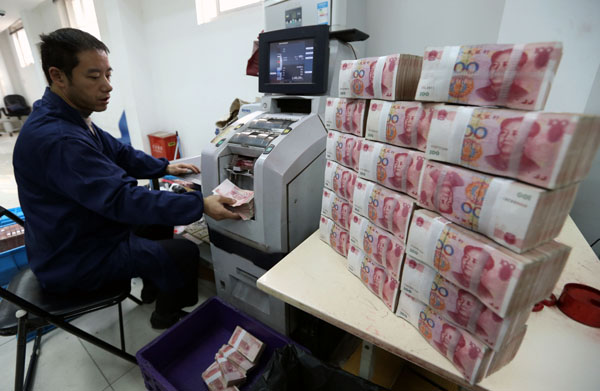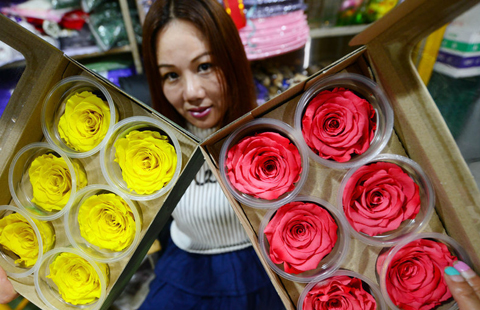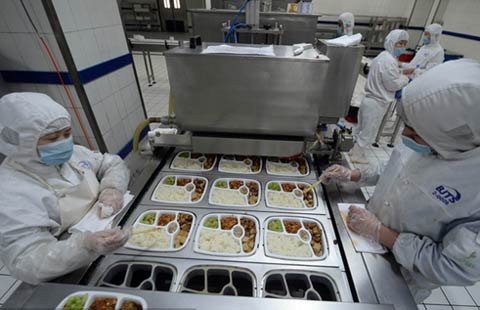China's central bank injects liquidity to reduce cash pressure
By Li Xiang (China Daily) Updated: 2015-02-13 07:39
 |
|
A bank employee prepares bank notes at an Industrial and Commercial Bank of China Ltd cash center in Wuxi, Jiangsu province. Surging demand for cash by customers for year-end bonus payments has put banks under pressure. [Photo provided to China Daily] |
Holiday demand, IPOs have financial institutions pressed to meet requirements
Monetary authorities seem to have joined the holiday spending spree by offering "red envelopes" worth billions of dollars to financial institutions to avert a seasonal liquidity crunch ahead of the Lunar New Year, which starts next week.
Increased demand for cash for year-end bonuses to employees and preparing red envelopes for friends and relatives, as well as last-minute holiday shopping, has banks under pressure to meet the demand.
The People's Bank of China on Thursday injected 160 billion yuan ($25.6 billion) through 14- and 21-day reverse repurchase arrangements at interest rates of 4.1 and 4.4 percent, respectively.
Reverse repos involve the central bank purchasing securities from banks, thereby injecting cash into the system.
With these transactions, the PBOC has injected a net 205 billion yuan into the financial system this week, the largest one-week liquidity injection by the central bank since January 2014.
The seasonal cash pressure on banks is being exacerbated by a wave of initial public offerings that will tie up huge funds, according to a Bloomberg survey
Analysts said that the PBOC's moves have not caused money market rates to drop substantially, indicating the central bank's objective is to ensure sufficient money supply rather than providing a flood of cheap money.
"The main purpose of the recent liquidity accommodation is to prevent financial risks caused by cash flow problems among financial institutions," said Zhou Xi, an analyst at Bohai Securities Co Ltd.
To ensure sufficient funds in the money market during the holiday season, the central bank also expanded the short-term lending arrangement, known as the Standing Lending Facility, to smaller city and rural financial institutions on a national basis.
- Spring Airlines will expand fleet size by up to 30 planes
- Jiamei to use backdoor route to public listing
- Ministry: China's subsidies comply with WTO rules
- New world of woes for China's trio of oil companies
- China's central bank injects liquidity to reduce cash pressure
- Gold loses its glitter in China in 2014
- Chinese consumers in love with Western day of romance
- Red envelope fight flares among Internet giants

















